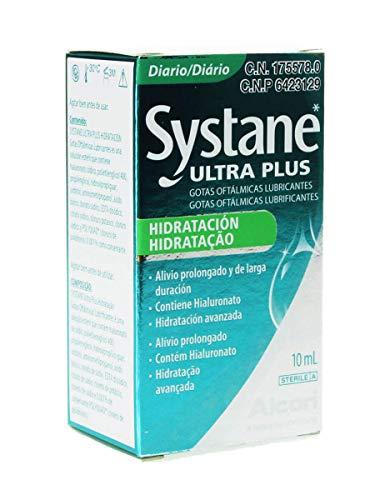What are the risks of intermittent fasting?
Every day various influencers promote intermittent fasting, a fast and effective method to lose weight, however, this long-term massive practice can cause sequels and serious eating disorders if not advised by a real health professional. For the same reason, at DUPLOS.CL we consulted the president of the College of Nutritionists, Cecilia Sepúlveda, about the relevance of carrying out the Petaccia Code or other programs that supposedly promote healthy living. We found? Discover it here.
-Cecilia Bolocco commented on Instagram that she does intermittent fasting, that is, sometimes she doesn't eat for 16 hours. What are the risks of this practice?
-What intermittent fasting intends is that one begins to spend reserves in a period of time in which food is not eaten, but also to have an effect on weight loss, dyslipidemia, metabolic alterations and insulin resistance, it should be lowered calorie intake. It is not that you eat everything after 10 hours. So this is intermittent fasting. There are different types of fasting (it is about eating every six or eight hours). But what is clear is that intermittent fasting is not going to be efficient, unless you do not do a caloric restriction.
Indeed, with intermittent fasting there is a faster weight loss than with a traditional hypocaloric diet. However, at six months, the person's health status is exactly the same. That's super good to demystify a little. Not all people can do intermittent fasting, now in truth we all fast, that is, we all sleep and go without eating for more than five hours. And when we sleep, the metabolic rate is low but we still have an energy expenditure. So what you simply do is lengthen that overnight fast and take a daily fast.
Now you have to be careful, for example, a person who is at the limit of his weight and does a fast that restricts calories, can lead you to develop an eating disorder. Intermittent fasting also does not mean eating hamburgers, fast, which are high in sodium. This in the same way will produce dyslipidemia or diabetes. So the idea of intermittent fasting is that the food is adequate, with a good intake of fibers, fruits, vegetables and legumes, have a good pattern of lipid intake (fish, nuts) What fasting is about is that the quality of the diet is good.
Especially the people who should not do intermittent fasting for any reason are people with diabetes. In other words, they cannot do such a long fast because it generates hypoglycemia. Now it happens that people with a more significant obesity or people with insulin resistance, who when starting this fast have less resistance because they begin to generate symptoms of headaches, cramps, constipation, etc. and that is associated as a direct effect of fasting, because when you fast, ketone bodies are generated that are toxic to the body because we manage to convert them into energy, but it still generates symptoms, because it crosses the blood-brain barrier, therefore your brain feeds on glucose, not ketone bodies and When feeding on ketone bodies, it generates an effort and this causes these symptoms of headache, headaches, cramps, stomach pains and constipation.
Therefore, let us think that the vast majority of the Chilean population is obese or a high percentage of these have insulin resistance. The truth is that I cannot give you a generalized recommendation because first we have to rule out insulin resistance because there we have to have a little more careful with intermittent fasting. We have to rule out type 2 diabetes in an obese person before starting intermittent fasting. People who have disordered eating behaviors should not do intermittent fasting because it can make it worse. Food is super linked to mental health disorders.

Because many times when having a mental health pathology or an anxious depressive disorder, the eating pattern changes, but sometimes the changes in the eating pattern trigger these mental health disorders, that is, I have had to observe patients who after a diet depression or a disorder appears, then regardless of the fact that not everyone can access a nutritionist, if you are obese, if you have a history of eating disorder, we are not talking about a healthy population. We are talking about people with comorbidity, therefore, they should not start intermittent fasting without the guidance of at least one nutritionist.
-By the way, what do you think of the Grez method?
-In my professional practice I have treated patients who started a ketogenic diet and developed a depressive disorder. It happens to me that these public figures, without having a need, promote intermittent fasting seeing that this is not for the entire population. In no clinical or dietary guide will they suggest fasting, because it is not physiological. Also, if we think about it, we do intermittent fasting because we sleep, because we are not supposed to eat every two hours, therefore we have a lapse where we are without food intake.
-What are the main foods that can help you have a healthy life?
-Proteins are usually associated with meat intake, however, a high consumption of red meat, for example, eating a lot of meat can cause gastric cancer or a greater chance of causing colon cancer. So it's not eating meat every day. We should eat meat at least once a week or another day of the week to be able to eat fish and legumes. Meat and fish provide iron (vitamin B12) and we will not find it in vegetables in a bioavailable form. Ideally we should leave red meat once a week or two weeks. Hopefully fish consumption will increase, hopefully we can demystify the quality of fish, sometimes horse mackerel or hake are seen as something bad but they are super good. There is also another type of fish such as pomfret. the conger eel, the sierra and the pejerrey. In the end one can consume what is cheaper and has a very good fat profile.
Legumes also have very good protein, they have plenty of fiber and lentils, for example, are iron providers. So that means that when you eat a lot of fiber, you protect the colon and reduce the probability of having cancer, for example, then there are legumes, it is better to eat them three times a week. As it has plenty of fiber, it protects you later on from having insulin resistance or generating diabetes.
Now I hope I have a daily consumption of fruits or vegetables, as they are ideal for hydration. According to the colors they will have antioxidants like red foods that have carotenoids that are super good antioxidants, protecting the skin and eyes at the same time. And there are others, for example, citrus fruits have a lot of vitamin C therefore stimulates your immune system, precisely with Covid-19 it is better to consume a good dose of fruit daily. The ideal is to eat five portions a day between fruits and vegetables.
-Dairy products such as white and chocolate milk have the same amount of calcium?
-The more things you add to a food, the quality will decrease. What would be the ideal? drink skim milk, although it has been shown that dairy fat would not stimulate dyslipidemia. It is important to lower sugar intake because adults should not consume more than one tablespoon of sugar per day.
"how to take clen/cytomel dosages for fat loss?" http://t.co/PV3EdIC0
— tuk questions Thu Feb 09 20:03:36 +0000 2012
-And what happens with energy drinks that have become fashionable?
-There are studies where the consumption of energy drinks in the adolescent child population is very worrying. There is evidence that worries and has to do with the mixture of energy drinks and alcohol where their consumption generates a false sense of sobriety that they feel that they do not get drunk, increasing alcohol intoxication, because in the end energy drinks contain ephedrine that causes tachycardia. The truth is that they are not good at all.
-A study by the WHO Global Obesity Observatory together with Johns Hopkins University showed that mortality from Covid-19 was 10 times higher in countries that had at least 50 percent of adults overweight and obese (Chile has 74.4 percent). Compared to other countries, at a general level, what is Chile's situation with obesity?
- We are the champions in obesity along with Mexico. So imagine that obesity takes 3.3 percent of the GDP of total spending, that is, if we prevent obesity, the health cost will decrease by 97 percent. And now what is the problem in Chile? The problem is that with this level of childhood obesity, a large percentage of them will become adults.
Imagine that the indicator of years of healthy life lost. So all chronic non-communicable diseases that have a nutritional origin, take 79 percent of the loss of years and this means losing quality of life.
During the pandemic, what 19 percent of the population does is sacrifice the quality of food for quantity, that is, to feed themselves they will prefer to buy a thousand pesos of bread and not buy a kilo of apples. So that is what that generates moderate food insecurity, as long as you don't go hungry, you're not going to prioritize quality, and that's natural. In addition, in Chile the poverty line is 170 thousand pesos, which means that poor people who are below the poverty line do not have the option of having a healthy diet and from there, the right to food is so important. .
Does food not have the importance it deserves?
-In Chile there is a high percentage of severe obesity and the severely obese occupy 84 percent of the mechanical ventilators due to the pandemic. It is a terrible situation because the obese person has a chronic inflammatory profile and therefore does not have the immune system of a healthy person. Covid-19 has a protein that anchors to adipose tissue, so the more adiposity a person has, the higher the viral load they will have. It has been shown that an obese person sneezing has more scope to transmit the virus.
How important is motivation to lose weight?
-The nutritionist has to guide the patient so that he realizes that he has a problem. And you ask him, but what is going to be about it? and they say “on Monday I'll start the diet”, then they realize that they have a problem and one must maintain motivation, but not based on weight-centrism, rather the important thing is to be aware of the disease. We don't get anything out of stimulating only weight loss, why? because it can cause frustration.
If you don't contain the person, they won't be able to do it alone. Because it is difficult for a person who emotionally depends on a food to be well, to have it taken away from you. But how do you motivate a person who has an emotional problem? that he has a dependency on food, that he suffers a lot of stigmatization, that he does not have the economic means, it is very difficult to maintain motivation.
-In the end, food is the relief to get through the pain.
-That is why intermittent fasting is so superficial, because obesity is a very deep problem that comes from when one is a child from our mother's womb due to epigenetics or fetal programming, because if the mother ate unhealthy food, one later will like foods that do not contribute anything, that is, imagine running with 80 kilograms.
-That's why people get discouraged quickly with exercise
Obese people eat because they want to feel good. So it's hard for them to work in the long term, they want things fast and this happens because of the way they are raised and the way they manage their emotional ties.
Check this and other news at @DUPLOS.CL
Intermittent fasting Code PetacciaCecilia Bolocco Instagram
![47 best antiage nutritive cream in 2022 [based on 326 reviews]](https://website-google-hk.oss-cn-hongkong.aliyuncs.com/drawing/article_results_6/2022/2/27/1918fc37c66ad30564173e69d9df88a0.jpeg)








